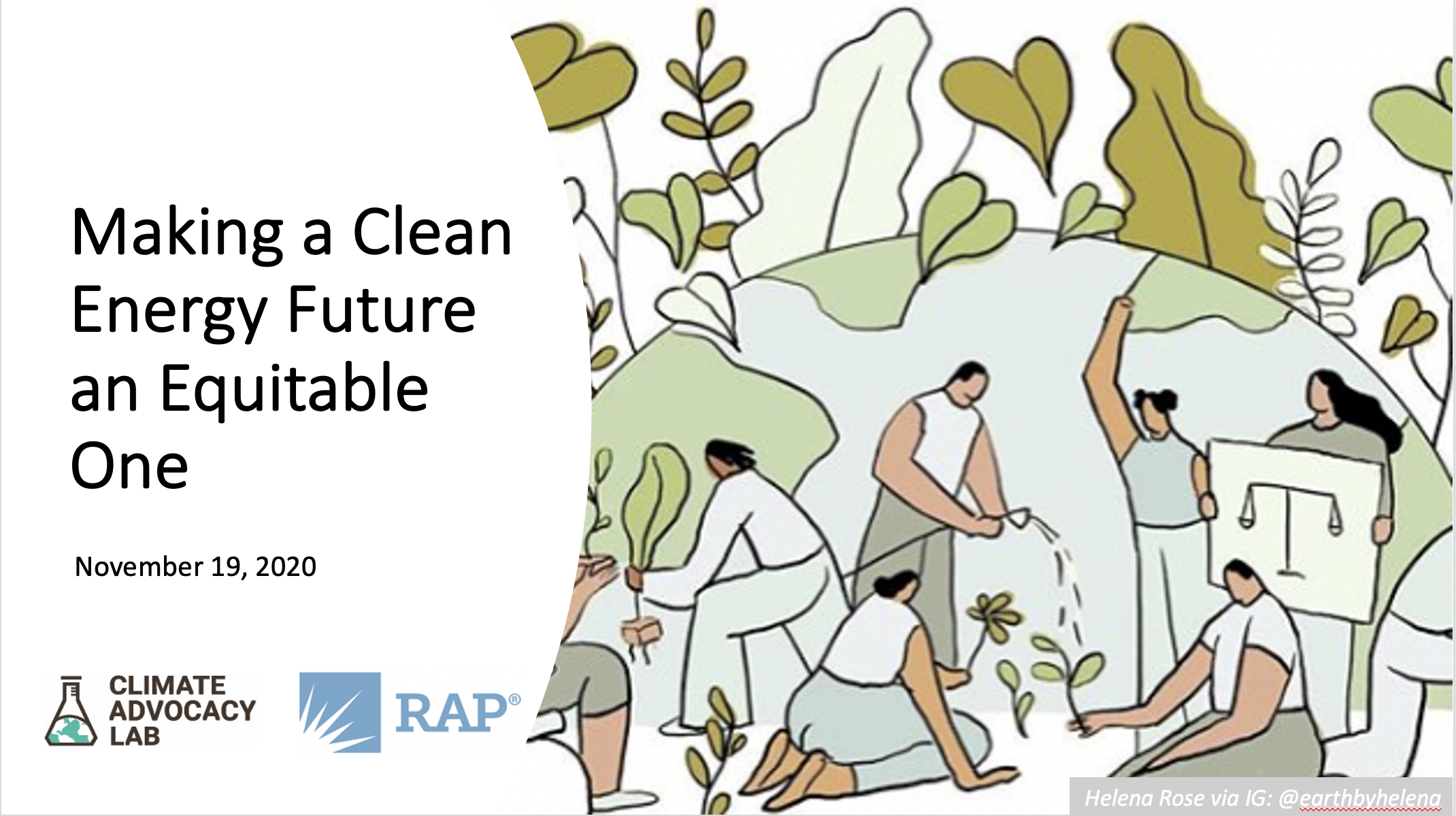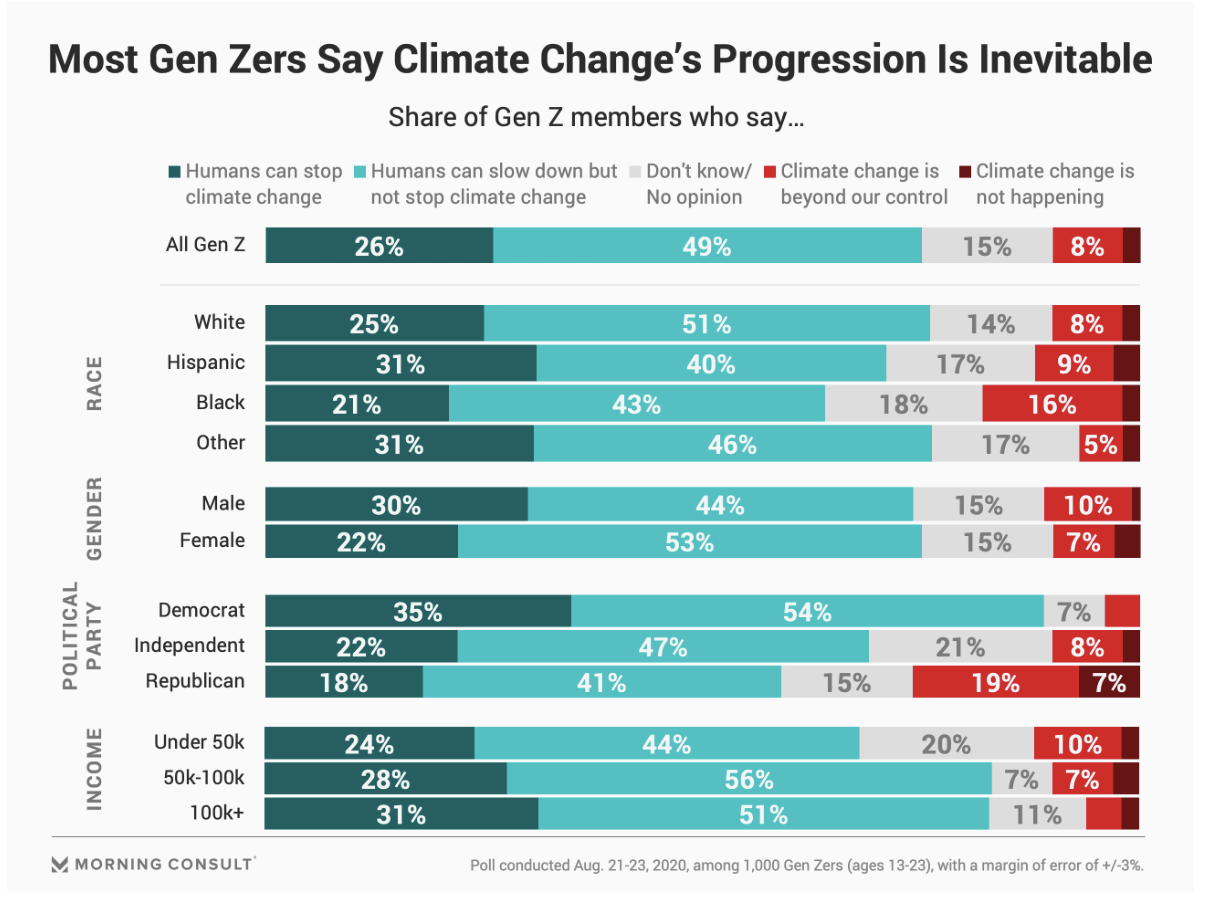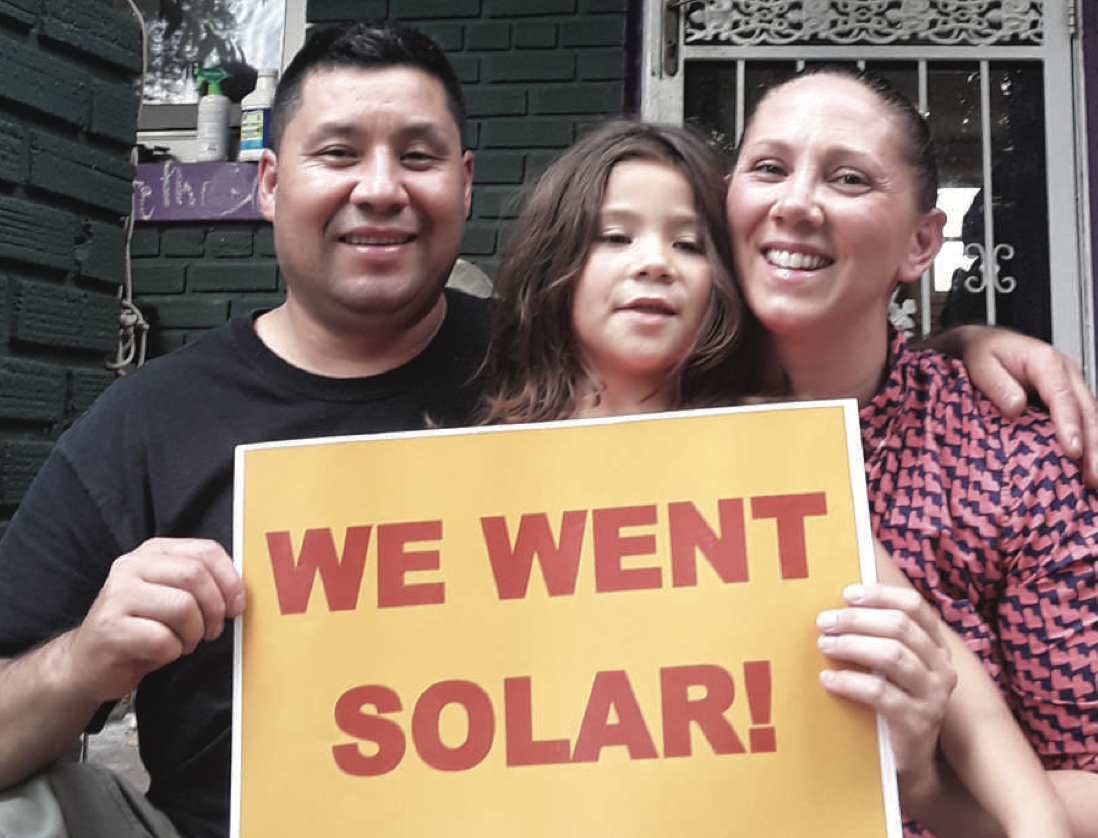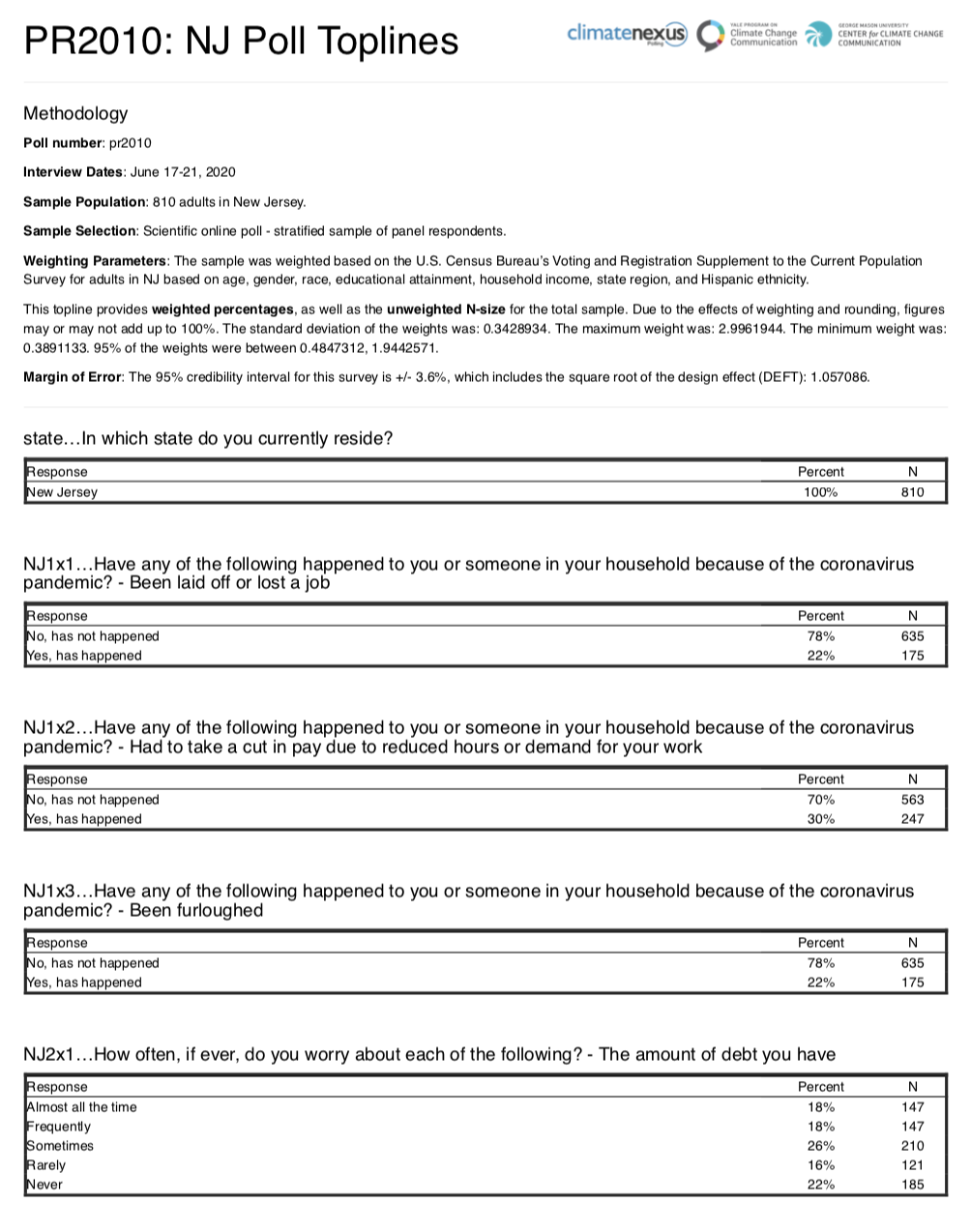Resources
Search below for resources covering the intersection of climate engagement, social science and data analytics.
RESULTS
Making a Clean Energy Future an Equitable One
In this webinar, the Lab team is joined by the Regulatory Assistance Project to explore recommendations from the new report Energy Infrastructure: Sources of Inequities and Policy Solutions for Improving Community Health and Wellbeing.
In addition to the report, participants also learn from advocates across the country fighting for an equitable clean energy future. Contributing speakers shared their reflections and lessons learned from a variety of perspectives on what it takes to achieve energy equity, including how they're financing low-income solar, how they're growing solar through state-level policy, and how to work in strong coalition.
Contributing speakers include: Donna Brutkoski, Communications Associate, Regulatory Assistance Project; Yesenia Rivera, Director of Energy Equity and Inclusion, Solar United Neighbors; and Jacqueline Hutchinson, Vice President of Operations, People’s Community Action Corporation.
Poll: NC voter support for clean energy policies ticks down but stays strong
- 79% of voters are more likely to support a lawmaker who supports policies that encourage renewabl energy options (such as wind, solar, and waste to energy technologies), compared to 51% of voters who are more likely to support a lawmaker who supports policies that encourage the development of more fossil fuel energy, such as coal and oil.
- Voters are most likely (85%) to support a lawmaker who supports legislation that would provide additional ways for home or business owners to finance energy upgrades, such as improved insulation, lighting, or windows.
- 77% of voters are more likely to support a lawmaker who wants to change North Carolina's regulatory policy to allow for more competition and consumer choice.
- A pluarility of voters (38%) see climate change as a "serious problem" and think "immediate action" is necessary. An addiitonal 22% support "some action."
- 60% of voters recognize that the effects of climate change "have already begun to happen" and 59% understand climate change is "mainly the result of manmade pollution."
Poll: Pennsylvania voters support participation in climate pact
A statewide poll of Pennsylvania voters found that...
- 72% support the state participating in the Regional Greenhouse Gas Initative (RGGI) and 56% said they were more likely to vote for state elected officials who support joining RGGI
- 56% said the initiative would boost the state’s economy, while 21% said it would hurt. Forty percent believed it would have a positive impact on their electricity bill
- 70% said they would be more likely to support RGGI if proceeds were invested in training workers for clean energy jobs, expanding energy efficiency programs for homes and businesses to lower consumer bills and boosting economic development in farming communities that produce renewable energy
- 78% percent want the state to provide job training, guaranteed wages or other assistance to coal and natural gas workers who lose their jobs as a result of the market transition to renewable energy sources
- 76% of respondents considered climate change to be a serious problem, with nearly half of voters saying it is “very serious”
- More than 70% also supported the state updating and strengthening regulations to restrict the release of methane from natural gas wells, pipelines and storage facilities
26% of Gen Zers think humans can stop climate change in its tracks while roughly half (49%) believe that the phenomenon can be slowed (but not stopped).
Gen Z expresses concern about climate at statistically the same rate as the general population, with 73% saying they are “very” or “somewhat” concerned about the impact of climate change on the environment.
When asked about their interest in pursuing a career in various sectors of the energy industry, Gen Zers are most interested in solar (50%) and wind energy (43%).
Solar United Neighbors designed and implemented a low- and moderate-income solar program that empowers D.C. residents to benefit from rooftop and commmunity solar. Lessons learned from the work necessary to build and run an effective program include: Start small, then scale up; Build trust in the community; Leverage key partnerships; Expand customer base through referrals; Work to simplify the process; and Be flexible and creative in the communications process.
State energy profile
Poll: 76% of New Jerseyans Support Using Renewable Energy to Reduce Electric Bills for Low-Income Families
At least 7 in 10 New Jerseyans support each of the six key components of the Clean Energy Equity Act, a bill that aims to help low-income New Jersey families benefit from solar, storage and energy efficiency.
Pennsylvania statewide poll shows majorities of residents across parties support policies that protect clean air (81%) and support clean energy policies (63%).
Resilient Clean Energy for California
This report documents the widespread impacts of power shutoffs in California and the drawbacks of conventional solutions. Vote Solar documents the risks of relying on dirty BUGs, including deaths from carbon monoxide poisoning, hazardous air pollution, and, ironically, fire hazards.
Solar with Justice
Under-resourced communities face a disproportionate share of societal burdens and lack access to many of the benefits other communities enjoy. Participation in the solar economy can help ease these burdens and provide low-and middle-income households with economic relief.
Pagination
- Previous page
- Page 4
- Next page



